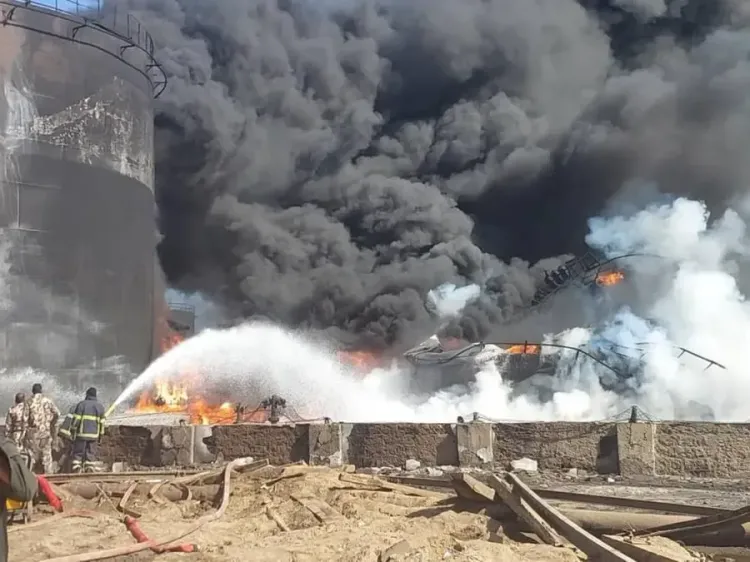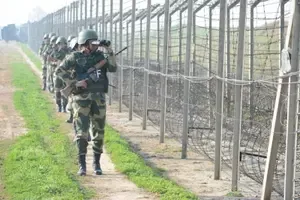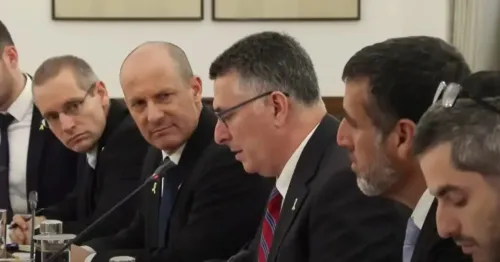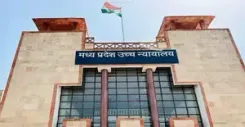Why are UN and humanitarian partners condemning attacks on civilians in Sudan's El Fasher?

Synopsis
Key Takeaways
- The UN and humanitarian partners condemn attacks on civilians in El Fasher.
- Rising violence poses significant risks to local aid responders.
- Urgent action is needed to protect civilians and ensure humanitarian access.
- Reports indicate widespread violations, including sexual violence.
- International support is crucial for sustaining life-saving operations.
The United Nations, on October 29, expressed deep concern over the rising violence in the beleaguered city of El Fasher, Sudan, alongside its humanitarian partners. They condemned the attacks on civilians in the region. The UN Office for the Coordination of Humanitarian Affairs (OCHA) stated that the UN and its aid partners have issued a strong condemnation regarding the reported assaults by the Rapid Support Forces (RSF) against civilians, humanitarian personnel, and critical infrastructure in El Fasher, which serves as the capital of North Darfur.
“We are appalled by credible reports of extensive violations, which include summary executions, assaults on civilians attempting to escape, intrusive house-to-house raids, and obstacles that hinder civilians from reaching safety,” the statement indicated.
“Reports of sexual violence, especially against women and girls, persist. Local responders are facing severe dangers, with some being detained or killed,” it added.
The Office of the United Nations High Commissioner for Human Rights has recorded approximately 1,850 civilian fatalities in North Darfur, with an estimated 1,350 occurring in El Fasher from the start of the year until October 20.
“This figure is likely an underrepresentation of the actual number of conflict-related deaths in El Fasher and North Darfur, owing to challenges surrounding telecommunications and access issues on the ground,” remarked Stephane Dujarric, spokesperson for UN Secretary-General Antonio Guterres, during a press briefing.
OCHA noted that local aid responders, who have been supporting communities for 18 months amidst the siege, are at grave risk, with some being detained or murdered. Humanitarian workers continue to operate under extreme peril to assist those fleeing towards Tawila and nearby areas.
The UN Refugee Agency (UNHCR) is providing life-saving assistance and essential services to displaced families, which includes shelter, basic necessities, cash aid, and counseling at community centers.
Nonetheless, the UNHCR reported that access to El Fasher remains obstructed, and humanitarian capacity is rapidly diminishing as needs escalate.
“The humanitarian community in Sudan is urgently calling for measures to safeguard civilians and humanitarian workers, ensure safe passage and access to those trapped in El Fasher, uphold accountability for all breaches of international humanitarian law, and increase funding to maintain life-saving operations while supporting local and women-led responders on the front lines,” OCHA stated.
The organization also emphasized its commitment to enhancing life-saving support throughout Darfur and to re-establishing their presence on the ground, as reported by the Xinhua news agency.
OCHA additionally mentioned that hostilities have escalated in North Kordofan state.
“OCHA reiterates that civilians must be protected wherever they are and allowed to evacuate safely and with dignity,” the office emphasized.
“We urge all parties to cease hostilities immediately, respect their obligations under international humanitarian law, and facilitate safe, sustained humanitarian access.”









